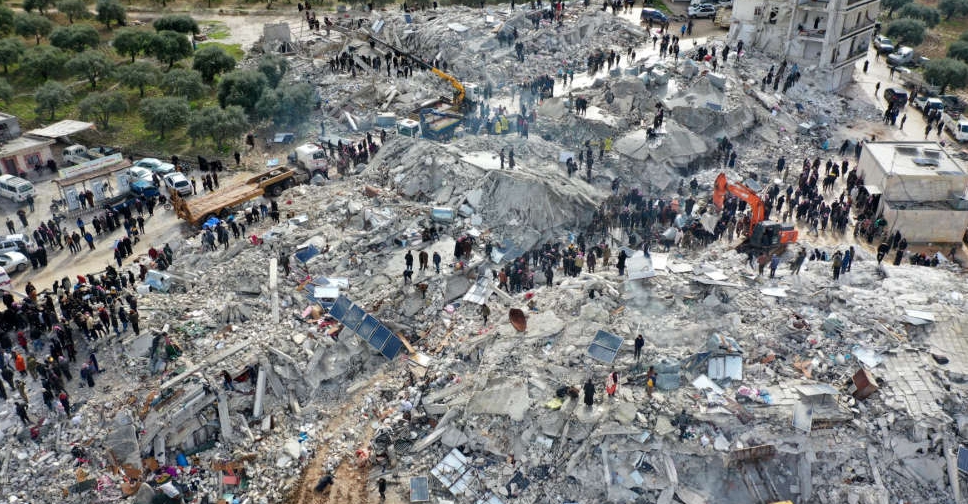Quake response in Syria faces obstacles, says high UN assist official

AFP
A high UN humanitarian official stated injury to roads, gasoline shortages and harsh winter climate in Syria had been hampering the company’s response to an earthquake on Monday that killed greater than 1,200 within the nation and left thousands and thousands in want of assist.
The big tremor, which additionally left greater than 2,300 individuals lifeless in Turkey, despatched individuals speeding into the streets in Syria’s north, the place previous air strikes and shelling have already traumatised the inhabitants and weakened many buildings.
“The infrastructure is damaged, the roads that we used to use for humanitarian work are damaged, we have to be creative in how to get to the people… but we are working hard,” UN resident coordinator El-Mostafa Benlamlih informed Reuters in an interview through video hyperlink from Damascus.
Even earlier than the 7.8-magnitude quake struck within the early hours of Monday morning, the UN estimated that greater than 4 million individuals in northwest Syria, many displaced by the 12-year battle and dwelling in camps, trusted cross-border assist.
While Syrian frontlines have been largely frozen for years, a deepening financial disaster has exacted a heavy toll throughout the fractured nation, resulting in gasoline shortages, elevated energy cuts and rising deprivation.
The United Nations says the variety of individuals in want of humanitarian assist is bigger than at any level because the battle started, with 70 per cent of the inhabitants requiring assist.
And that was earlier than the quake struck.
Now, “they are the same people – suffering more,” Benlamlih stated.
He famous that many individuals whose houses had been destroyed had been spending the night time sleeping out within the open or in automobiles, usually in freezing temperatures, with out ample entry to primary gadgets like jackets and mattresses.
He stated the United Nations was working to mobilise all the help it may to the affected zones – each in government-held and rebel-held areas – as shortly as attainable.
But worldwide assist is stretched and underfunded.
The UN acquired lower than half of the $4.4 billion it required from donors to satisfy rising wants in 2022, and if that development continues, Benlamlih stated prospects for a restoration from the Syrian disaster may dim.
“Whatever we have, we are using it for now. And, hopefully, we will be able to get that replenished for the normal needs,” Benlamlih stated.
“When we are getting less than 50 per cent of funding, it’s not that we managed. The number of people in need keeps increasing and the crisis keeps deepening.”

Source web site: www.dubai92.com
